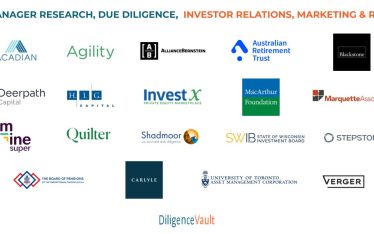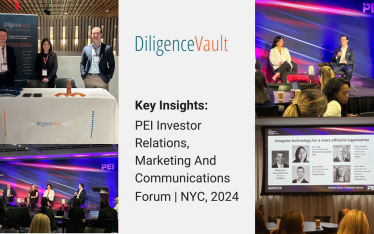What accounts for the great variety of personal and professional life outcomes among people from similar backgrounds? Why do some people succeed when others fail? There is an element of luck in every life, both good and bad, as noted in common aphorisms such as: “Sometimes it is better to be lucky than smart” or “You make your own luck.”
The enterprising businessperson and investor who is looking to enhance their chances of success may want to consult “The Success Equation: Untangling Skill and Luck in Business, Sports, and Investing” by Michael Mauboussin (who served as this writer’s adjunct professor of finance at Columbia Business School). As the subtitle infers, Mauboussin takes an interdisciplinary approach to understanding success, which makes the book an enjoyable read, as he delves into research on improving skill and process outcomes across a variety of professions and applications.
Complex Systems
Complexity abounds in the investment industry. Markets are complex because they are impacted by a plethora of factors that are hard to disentangle. If the S&P 500 goes up on a given day, what caused it? Was it strong corporate earnings reports, nice weather in New York, or a surprise ECB policy decision in Europe that moved money into US equities at the expense of other investment alternatives? The stock market is an example of a complex and adaptive system involving the interaction of a high number of agents, effectively obscuring cause and effect. The results of such systems are notoriously hard to predict.
Use of Intuition
In his book Mauboussin cites the pioneering research of Daniel Kahneman (“Thinking, Fast and Slow”) to explain the usage of intuition in decision-making, particularly in the face of complexity. An investor in the stock market, for example, may cite experience and training as qualifications that provide them with superior judgment, or intuition about investing. However, in the face of complexity, they would be best served by replacing intuition with a sound process. A process allows for multiple team members to participate and is repeatable.
The Stories We Tell
It appears to be human nature that we all like a good story. However, any story can be told post hoc, or after the fact, that makes the outcome seem inevitable. The story around the success of Apple is legend. Prominent early Apple investor Alan Patricof recently commented that he would be notably wealthier if he had retained the investment in the company and fully capitalized on the stroke of luck. Although he sold the Apple stock at some point, Mr. Patricof has nonetheless done very well for himself. This is because of his skill as a venture capital investor, which has proved itself in scores of investments over time, rather than relying on one lucky strike.
We humans also seek comfort in knowing that there is an alignment of cause and effect. Achieving success in an endeavor is aided by being able to predict the outcomes told in our stories. That requires skill. Investment skill can be honed by things like training and practice in financial analysis of companies, the study of economics, the practice of quantitative analysis with factor models, and experience reading situations and people. However, cause and effect are not linear in investing because investing is an activity whose success depends greatly on luck – especially over short periods of time. In business and investing, long winning streaks always meld luck and skill. There is also an undersampling of failure – those many stories simply are not told. Regardless of whether the result is from luck or skill, it is human nature to find a story and to attribute the result to a simple cause. A great process seldom makes for a great story, although it does appear to enhance the chance for success.
Paradox of Skill in Investment Management
So many gifted, talented and ambitious professionals have come into investment management, it is hard to outperform. Because investing is highly competitive, randomness (essentially luck) plays a large role in determining the investment result. The research shows that most active managers outperform the index on a gross basis, but net of fees they underperform. In other words, while there is evidence of skill in investing, not many managers have enough skill to offset their cost. Also, as widely disclaimed, past performance is no guarantee of future results, particularly over short periods. Therefore, although luck is heavily involved, as with other probabilistic activities, process shapes investment outcomes.
Managerial Skill in Organizations
Managerial skill is the ability to allocate financial, human and organizational capital. Outcomes of strategic decisions are probabilistic in nature, and companies need some good luck to survive for a long time. Probably the biggest reason for failure in companies is that they fall prey to organizational rigidities. They must balance exploiting profitable markets with exploring for new opportunities, which is both more expensive and risky. But the failure to conquer new markets and products leads to extinction. Companies follow an arc of skill.
Winner-Take-All and Power Laws
Mauboussin draws on research in “The Winner-Take-All Society” by Robert Frank and Philip Cook, which suggests that increased competition for talent contributes to outsized pay for top performers. If one competitor has a slight advantage over another, there is a cumulative advantage that gets compounded over time. Skill is important, but it can be overwhelmed by the effect of luck. Furthermore, power laws (where relations between variables are on a logarithmic as opposed to natural scale) describe the behavior of an astonishing number of social phenomena. In these systems, there are a very large number of small values but very few large ones. Here the concept of ‘average’ (like the average of Bill Gates’ net worth and most anyone else’s, for example) does not really mean anything.
The difference in talent between the best singers or the best top executives is not large. However, the competition for talent means that those who are perceived to be the top performers achieve superstardom in the worlds of music or business, while those of similar ability spend their careers without achieving the stratospheric success of those peers. There is an assumption that greater skill is the root cause of great success. Skill can provide an edge, but the research shows that it is not identifiable, so luck plays a significant role.
In fact, it is luck that helps the perception of skill through social influence and contributes to winner-take-all results for the highest paid entertainers, athletes, executives, and fund managers. Luck is not only behind the inequality of outcomes, it also influences what we perceive as being skillful. There is an inherent lack of predictability for a product determined through a social process. In business, entertainment, sports and investing, people are paid for luck. Still we should try to measure skill and reward it appropriately, while acknowledging luck for what it is. What to do if we cannot plan on being lucky? Barring great good luck, investing in skill and good process are what we can do to ensure our greatest chance of success.
Repeatable Process: Training and Practice
Mauboussin cites research showing that deliberate practice improves skill, provided there is also timely and accurate feedback. If you want to learn to play an instrument or a sport, consistent practice accompanied by coaching will increase your skill. However, when the outcome is partly influenced by luck, like with playing poker or investing, the link between practice and product is broken. Still, the research shows that if you continue to practice and gain expertise, as well as learn patience and resilience, you are more likely to be successful over time.
Coaching and mentoring are material to strong performance. This explains why aspirants seek opportunity to study with star professors and work with industry-leading practitioners, in order to benefit from their knowledge and feedback. If the work product requires a team, you surely need a process. Most jobs have elements that combine familiar tasks with novel or unexpected situations. Having a process allows the skill of team members to come through.
Checklists Influencing Process
Mauboussin draws on the research of Atul Gawande and others to demonstrate that the use of checklists can improve performance across a variety of applications because they are a way to manage attention. They ensure rigor in a process and improve the likelihood of a good outcome.
Checklists are a way to enhance process and focus attention on the things that are important which might be forgotten given distractions from a challenging situation. However, checklists are not used as widely as they could be, certainly not in the finance industry. Mauboussin notes that checklists are underutilized in jobs that combine probabilistic tasks with tasks that follow a set of rules or set procedures. This may be because professionals often see themselves as practicing a craft and find a checklist demeaning. Still, research suggests that a checklist as part of an investment process improves the likelihood of success.
Skillful Process
A skillful process has 3 parts: analysis, psychology, and influences exerted by the organization. The analysis involves identifying the real causes of success, such as sustainable competitive advantage / economic profit in the business world, or the discrepancy between the price of a stock and what it ought to be worth for investing. This is harder than it may seem, and requires practice. Psychology involves recognizing biases and making good decisions when gains and losses are uncertain. This is also challenging and requires great focus and effort.
Overcoming Constraints
The final part of a skillful process addresses organizational and institutional constraints. This involves managing agency costs, or the costs that arise because the agent (the money manager, or the management team at a company) may have interests that differ from those of the principal (the investor in a fund or company). As a professional, the fund manager wants to maximize long-term returns, which at times means differing from consensus. However, as a businessperson, the fund manager wants to run a vibrant business, and that is less risky when you join the consensus rather than flying in the face of it.
Mauboussin’s research shows a clear trend of portfolios moving toward the benchmark, an indication of conformity. Given the consolidation in asset management and the agglomeration of galactic size firms, the issues of performance and fees are at the forefront again today. This has sparked a movement among some allocators to actively seek out smaller managers with niche strategies that can more readily diverge from the mean and generate alpha.
Whether your organization is large or small, you can improve your chances of success by diligently working to improve your skill and ensure a strong process. Additionally, it wouldn’t hurt to get a little lucky!


